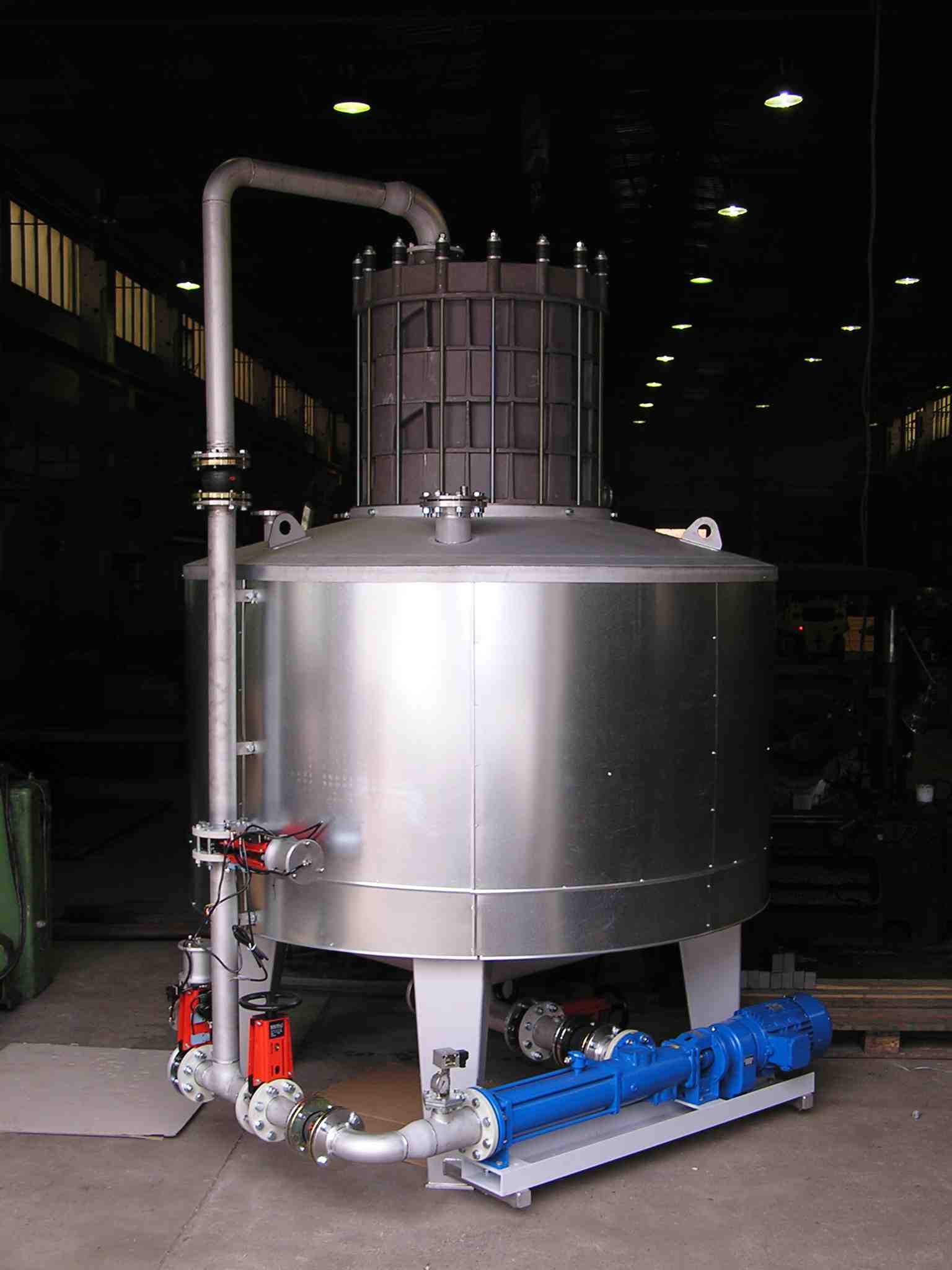-
Index

 The Hygienisator is build in a combination of a special designed vessel and spiral-heat-exchanger
in modular design. The equipment has a system for constant product circulation with pump and control unit, for data collection and process optimization. Finally, with this design this unit is able to operate energetically and technically efficient and can be adjusted to the specific conditions of each biological substrate. The unit follows the process steps heating, homogenize, cooling, emptying.
The Hygienisator is build in a combination of a special designed vessel and spiral-heat-exchanger
in modular design. The equipment has a system for constant product circulation with pump and control unit, for data collection and process optimization. Finally, with this design this unit is able to operate energetically and technically efficient and can be adjusted to the specific conditions of each biological substrate. The unit follows the process steps heating, homogenize, cooling, emptying.
The biological substrate is embed at ambient temperature, will be heated by circulation through the high performing spiral-heat-exchanger in modular design up to 70°C, remains in the vessel for 1 hour, will be cooled with fresh feed or a different cooling loop and is released to the digestion tank with temperatures of 38°C (mesophil) or 56°C (thermopile).
The specially designed spiral-heat-exchanger is capable to treat liquid with fouling behavior and a dry solid content from 12 - 18 %.
The process of hydrogenation is batch wise in a closed system, at constant mandatory temperature and residence time, DCS controlled with data collection for a documented evidence of conformity.
With the modular design of the unit it is possible to adjust vessel volume and heat transfer duty to any biological mass per day ratio and batches.